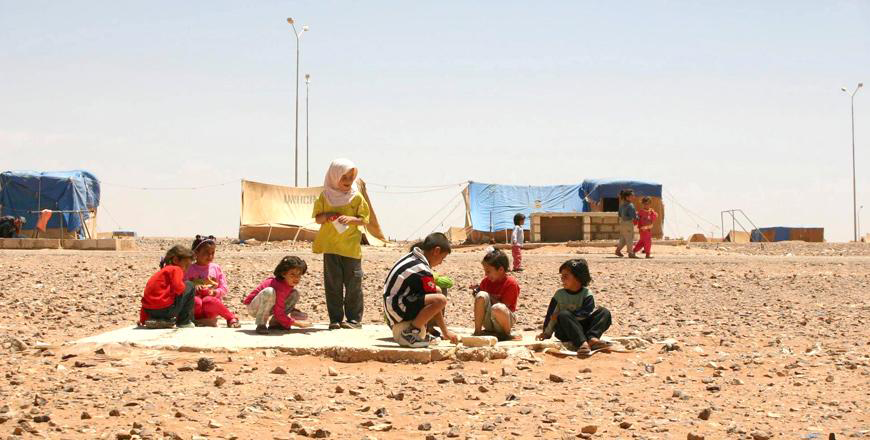You are here
Experts warn against rising unemployment among Syrian refugees amid insufficient aid
By Rana Tayseer - Mar 04,2024 - Last updated at Mar 04,2024

Reports and experts says that there is a growing crisis among refugee families in Jordan (JT file photo)
AMMAN — Reports and experts said that there is a growing crisis among refugee families in Jordan, who are struggling to afford rent due to a decrease in humanitarian aid and an increase in unemployment rates among Syrian refugees.
As the number of Syrian refugees continues to rise, unemployment rates among this group are expected to increase. Many lack the necessary experience and job priority is often given to Jordanian workers, Wajdi Makhamreh economist, told The Jordan Times on Monday.
Makhamreh explained that the current conditions, characterised by a decline in grants and international support for Syrian refugees, coupled with the Kingdom bearing the costs of the refugee influx, will inevitably impact their standard of living.
He also said that Jordan should appeal to donor countries to increase support or provide loans and grants to Syrian refugees, which could help reduce their unemployment rates.
In 2023, despite Jordan continuing to issue work permits, the unemployment rate among Syrian refugees in Jordan reached 27 per cent, according to official figures.
The United Nations High Commissioner for Refugees (UNHCR) assessment of the social and economic situation of refugees in Jordan for the fourth quarter of 2023 reported similar figures.
The unemployment rate was 27.2 per cent among Syrian refugees and 43.8 per cent among non-Syrian refugees, while the unemployment rate among Jordanians was 16.9 per cent, according to data for the third quarter of 2023.
The UNHCR report also said that 91 per cent of Syrian refugee families and 87 per cent of non-Syrian refugee families were burdened with debt. The percentage of families unable to pay rent increased from 41 per cent in the second quarter of 2023 to 51per cent in the fourth quarter.
Among the participants covered by the assessment receiving cash assistance, 48 reported that they were unable to pay rent in the third quarter of 2023, while 40% received an eviction threat during the reporting period.
Rami Ajaj, a Syrian refugee residing in Jordan with his wife and two children told The Jordan Times on Monday that the cessation of financial aid has left his family in a precarious situation, adding that his earnings are insufficient to cover the rent for their home and other living expenses.
He also said that his children’s school fees have become an additional burden that he is unable to shoulder and that his wife has started working in people’s homes to supplement their income.
“All Syrian refugees are facing many difficulties with rent, food, and other expenses,” he told The Jordan Times.
Related Articles
AMMAN — A survey recently published by the United Nations High Commissioner for Refugees (UNHCR) revealed that only 13 per cent of Syrian re
AMMAN — Of the more than 87,000 registered refugees or asylum seekers of non-Syrian nationalities in Jordan, many struggle to obtain humanit
AMMAN — The United Nations High Commissioner for Refugees (UNHCR) provided cash assistance worth $70 million to more than a quarter of

















